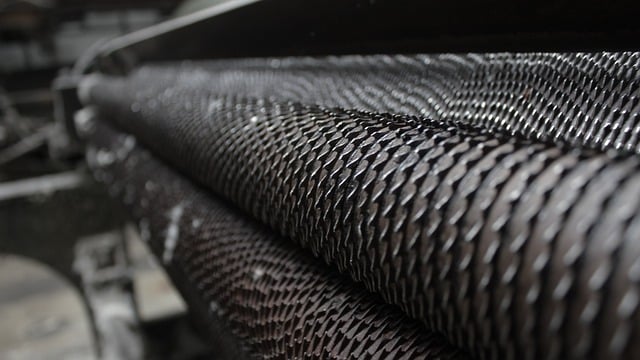In the dynamic landscape of modern manufacturing, CMMS (Computerized Maintenance Management System) emerges as a pivotal tool for achieving lean manufacturing objectives. Imagine CMMS as the conductor orchestrating a symphony of efficiency within a factory. Just as a skilled conductor coordinates every musician to produce harmonious music, CMMS coordinates maintenance tasks and operations seamlessly.
Why is CMMS essential? It acts as the backbone of lean manufacturing by streamlining maintenance processes, reducing downtime, and optimizing asset performance. By integrating preventive maintenance schedules and real-time data analytics, CMMS ensures that machinery operates at peak efficiency, minimizing disruptions and maximizing output.
Picture a factory floor where every machine hums with precision, thanks to proactive maintenance alerts from CMMS. It’s like having a crystal ball that predicts potential equipment failures before they occur, allowing maintenance teams to intervene proactively. This predictive capability not only saves time but also slashes costs associated with unplanned downtime.
Moreover, CMMS enhances transparency and accountability across the manufacturing chain. It provides detailed insights into asset performance metrics, maintenance histories, and compliance records. Imagine having a digital logbook that records every machine’s health and maintenance journey, accessible at the touch of a button.
In essence, CMMS isn’t just a tool; it’s a game-changer in the pursuit of lean manufacturing excellence. It empowers manufacturers to operate smarter, faster, and more efficiently. By embracing CMMS, companies can uphold their commitment to quality, reduce waste, and stay ahead in today’s competitive market. Embrace CMMS, and watch your manufacturing operations transform into a lean, mean, efficient machine.
Streamlining Production: How CMMS Revolutionizes Lean Manufacturing
Imagine a factory floor buzzing with activity, where every machine hums in perfect sync like a well-rehearsed orchestra. That’s the goal of lean manufacturing, and CMMS plays a pivotal role in achieving this harmony. By integrating maintenance schedules, equipment data, and work orders into a single digital platform, CMMS ensures that every cog in the machinery turns precisely when needed, minimizing downtime and optimizing production cycles.
In simpler terms, CMMS acts as the conductor of this manufacturing symphony, orchestrating the movement of machines and materials in perfect rhythm. Just like how a GPS guides a driver through the fastest route, CMMS guides manufacturers through the most efficient production paths, cutting through inefficiencies like a skilled surgeon.
But CMMS doesn’t just stop at operational efficiency. It’s also the guardian of machine health, predicting potential breakdowns before they happen. Think of it as a vigilant guardian angel that alerts technicians to looming issues, allowing them to intervene before a small glitch snowballs into a major shutdown.
Moreover, CMMS isn’t just for the big players in manufacturing. It democratizes efficiency, offering smaller firms the same tools that giants use to stay ahead. In today’s fast-paced market, where every second counts and competition is fierce, adopting CMMS isn’t just an option—it’s a necessity for survival.

So, whether you’re manufacturing automobiles or crafting artisanal furniture, embracing CMMS means more than just adopting a software solution. It means embracing a culture of continuous improvement, where every process is fine-tuned, every resource is optimized, and every product that rolls off the line is a testament to efficiency and quality.
Efficiency Unleashed: CMMS Solutions Redefining Lean Manufacturing Strategies
CMMS, or Computerized Maintenance Management Systems, are revolutionizing how manufacturers approach lean strategies. These systems are the digital backbone that ensures equipment runs smoothly, maintenance is proactive rather than reactive, and resources are optimized to their fullest potential.
Picture this: a factory manager monitoring the health of every critical machine in real-time, receiving alerts before a breakdown occurs. It’s like having a crystal ball that predicts maintenance needs before they disrupt production. This proactive approach not only prevents costly downtime but also extends the lifespan of equipment, saving significant operational costs in the long run.
CMMS goes beyond just maintenance scheduling. It integrates with other systems, such as ERP (Enterprise Resource Planning), to streamline workflows and synchronize data across departments. This interconnectedness ensures that decisions are based on real-time information, enhancing overall operational efficiency.
Think of CMMS as the conductor of a symphony orchestra, where each instrument (machine) plays its part harmoniously, guided by precise cues and signals. It orchestrates the delicate balance between production output and resource consumption, optimizing both productivity and profitability.
Moreover, CMMS empowers manufacturers with data-driven insights. By analyzing historical maintenance records and performance metrics, companies can identify trends, pinpoint inefficiencies, and fine-tune processes for continuous improvement. It’s like having a navigator on a journey, guiding the ship through turbulent waters towards smoother seas and greater achievements.
Cutting Waste, Boosting Productivity: The CMMS Impact on Lean Manufacturing
Imagine your factory floor humming along like a well-oiled machine, every process timed to perfection. That’s the power of CMMS. By automating maintenance schedules and tracking equipment performance, CMMS ensures that machines run smoothly and downtime becomes a relic of the past. It’s not just about fixing things when they break; it’s about preempting issues before they occur.
Take, for instance, a bustling automotive plant. With CMMS in place, every robotic arm and conveyor belt operates at peak efficiency, thanks to predictive maintenance algorithms that anticipate failures and recommend proactive fixes. This predictive prowess isn’t just a cost-saver; it’s a game-changer in an industry where every minute of downtime equals lost revenue.
CMMS doesn’t stop at maintenance schedules; it’s a treasure trove of data-driven insights. Managers can pinpoint bottlenecks, optimize workflows, and fine-tune production schedules with surgical precision. It’s like having a crystal ball that predicts the future of your production line, allowing you to adjust course before issues arise.
In today’s fast-paced manufacturing landscape, staying competitive means embracing efficiency at every turn. CMMS isn’t just a tool; it’s a mindset—an ethos of continuous improvement and operational excellence. Whether you’re in automotive, pharmaceuticals, or consumer electronics, CMMS isn’t just an option; it’s the secret weapon that transforms your factory into a lean, mean, manufacturing machine.
From Data to Efficiency: CMMS Tools Leading Lean Manufacturing Innovations
Imagine a factory where every machine operates at peak efficiency, downtime is minimized, and maintenance is proactive rather than reactive. That’s the power of CMMS tools in action. By seamlessly integrating data from various sources—sensors, historical records, and real-time analytics—CMMS empowers manufacturers to make informed decisions swiftly. It’s like having a digital assistant that not only alerts you to potential issues but also suggests the best course of action to prevent disruptions.
What makes CMMS truly revolutionary is its ability to turn raw data into actionable insights. It collects information on equipment performance, maintenance histories, and even employee workflows, analyzing everything to identify patterns and inefficiencies. This proactive approach not only saves time and money but also enhances overall productivity.
Think of CMMS tools as the conductor of a symphony, orchestrating a seamless flow of operations where each instrument (machine) plays its part perfectly. From scheduling preventive maintenance to optimizing spare parts inventory, CMMS ensures that every aspect of manufacturing runs like a well-oiled machine—pun intended.

In the realm of lean manufacturing, where minimizing waste and maximizing value are paramount, CMMS tools are indispensable. They enable manufacturers to streamline processes, reduce unnecessary downtime, and improve resource allocation. Moreover, by fostering a culture of continuous improvement, CMMS helps companies stay agile and responsive in a competitive market.
CMMS tools aren’t just about managing maintenance tasks—they’re about transforming data into efficiency. By harnessing the power of technology, manufacturers can achieve lean manufacturing goals while staying ahead in today’s dynamic business environment.
Frequently Asked Questions
What are the cost-saving benefits of implementing CMMS in lean operations?
Discover how implementing CMMS (Computerized Maintenance Management System) in lean operations can lead to significant cost savings. Learn how CMMS optimizes maintenance schedules, reduces downtime, extends asset lifespan, and enhances overall operational efficiency.
What is CMMS and how does it support lean manufacturing?
Learn what CMMS is and how it enhances lean manufacturing processes. CMMS, or Computerized Maintenance Management System, helps streamline maintenance activities, optimize asset performance, and minimize downtime in lean manufacturing environments. By enabling efficient scheduling, tracking, and reporting of maintenance tasks, CMMS ensures equipment reliability and operational efficiency, crucial for maintaining lean principles of minimizing waste and enhancing productivity.
What are the essential features to look for when choosing a CMMS for lean manufacturing?
When choosing a CMMS (Computerized Maintenance Management System) for lean manufacturing, essential features to consider include real-time data integration, predictive maintenance capabilities, mobile accessibility for on-the-go monitoring, scalability to accommodate growth, and integration with existing ERP systems. These features help streamline operations, reduce downtime, and optimize maintenance schedules to align with lean principles.
How does CMMS enhance overall efficiency in a lean manufacturing environment?
Learn how CMMS (Computerized Maintenance Management System) boosts efficiency in lean manufacturing. Discover how streamlined maintenance schedules and real-time data improve equipment uptime, minimize downtime, and optimize resource allocation.
How can CMMS improve equipment reliability in lean manufacturing?
Learn how implementing Computerized Maintenance Management Systems (CMMS) in lean manufacturing can enhance equipment reliability by optimizing maintenance schedules, reducing downtime through proactive maintenance practices, and ensuring timely equipment inspections and repairs.



